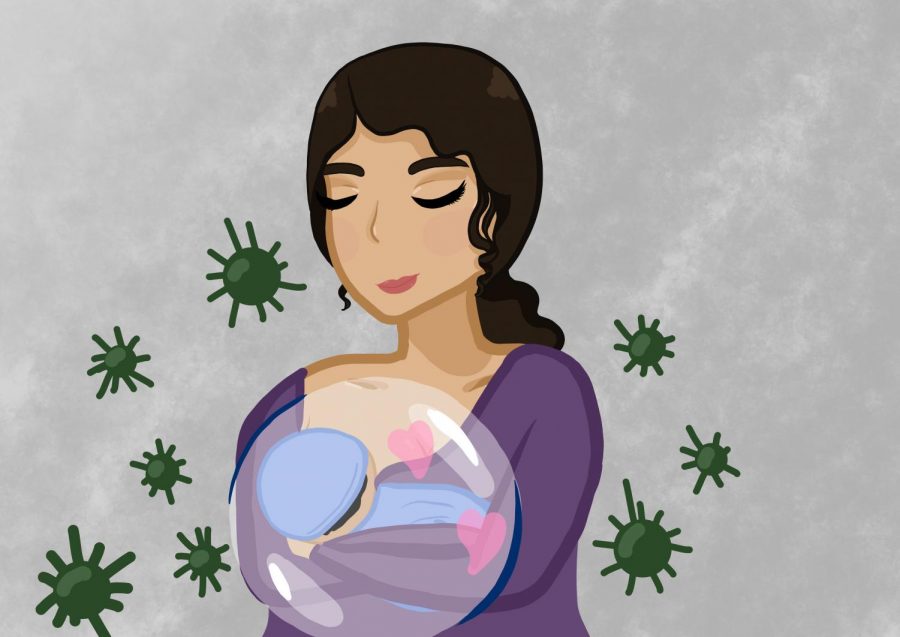Mothers pass SARS antibodies to babies in milk
Two strains of COVID-19 virus were studied in breastfeeding mothers
The COVID-19 virus likely cannot infect breast milk, so breastfeeding is probably not risky. Now, researchers are studying possible vaccine side effects in breastfeeding women.
February 25, 2021
Breastfeeding mothers who have COVID-19 are unlikely to give their infants the virus, discovered researchers from WSU, the University of Idaho and other universities nationwide.
The research team began investigating whether COVID-19 could infect breast milk and give babies the virus last March, said UI nutrition researcher Shelley McGuire. A group of COVID-19 positive, breastfeeding women were selected to be part of the ongoing research.
When the pandemic began, the Centers for Disease Control and Prevention recommended separating breastfeeding moms and babies, McGuire said. Now, the team has concluded there is a low chance the virus can infect breast milk. Mothers can actually give their babies COVID-19 antibodies.
Breast milk from a group of 18 COVID-19 positive women was tested. Researchers found that none of the samples contained the virus, but two-thirds contained antibodies from two strains of SARS-CoV-2, the virus that causes COVID-19, WSU anthropology professor Courtney Meehan said.
“It looks like breastfeeding is not a risk,” McGuire said. “The chance of what we found on the breast being viable and an infective virus is very low.”
Transmission of the virus was initially a significant concern because other viruses can be passed to babies through breastfeeding. COVID-19 likely cannot because it is a respiratory virus, whereas viruses that can be passed through breastfeeding are blood-borne, McGuire said.
Meehan said researchers started to recruit moms and infants who have not contracted the virus to get a better idea of how the virus infects individuals. This portion of the study will wrap up next month.
The research team started a second study to understand possible effects of the COVID-19 vaccine in breastfeeding women. They will analyze breast milk from women who received the vaccine, McGuire said. So far this study has over 65 female participants.
“The first crisis was ‘Can breast milk transmit the virus?’” she said. “The second crisis that started in December is that they didn’t test the vaccine in breastfeeding women.”
Breastfeeding women were not offered the vaccine when it first became available, McGuire said. After backlash, the CDC quickly changed that.
The research team believes it is essential for the vaccine to be available to all priority groups right now, Meehan said. Breastfeeding women are no exception.
“Healthcare workers are made up of a lot of women in that age range, and it’s important for them to have the [vaccine],” she said.
Although the Moderna COVID-19 vaccine is not recommended for pregnant women, the research team does not believe there are any concerns with that group receiving the vaccine, Meehan said.
She said the team will also conduct a national study to understand what factors are influencing women’s decision to receive the vaccine.
The pandemic has provided a number of opportunities for different studies, and the team plans to continue evaluating different areas of research, Meehan said.
“The questions just keep evolving. There is no playbook,” McGuire said.










